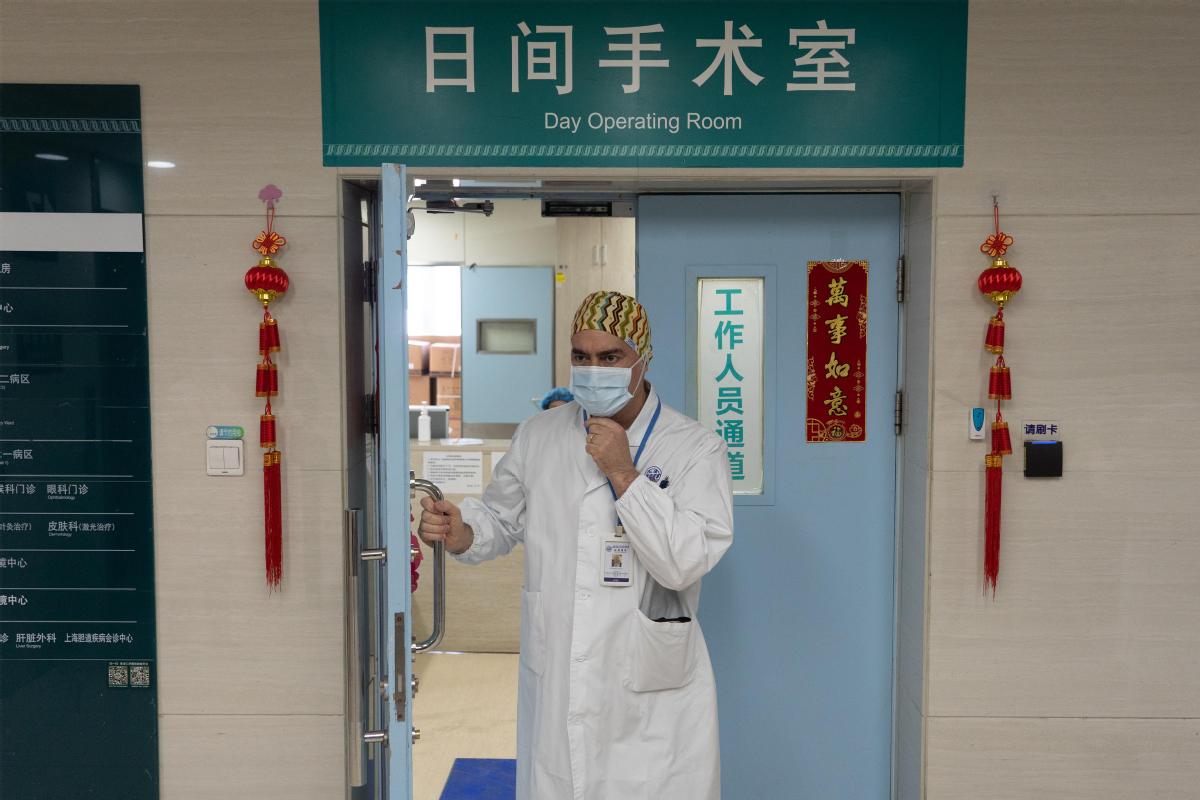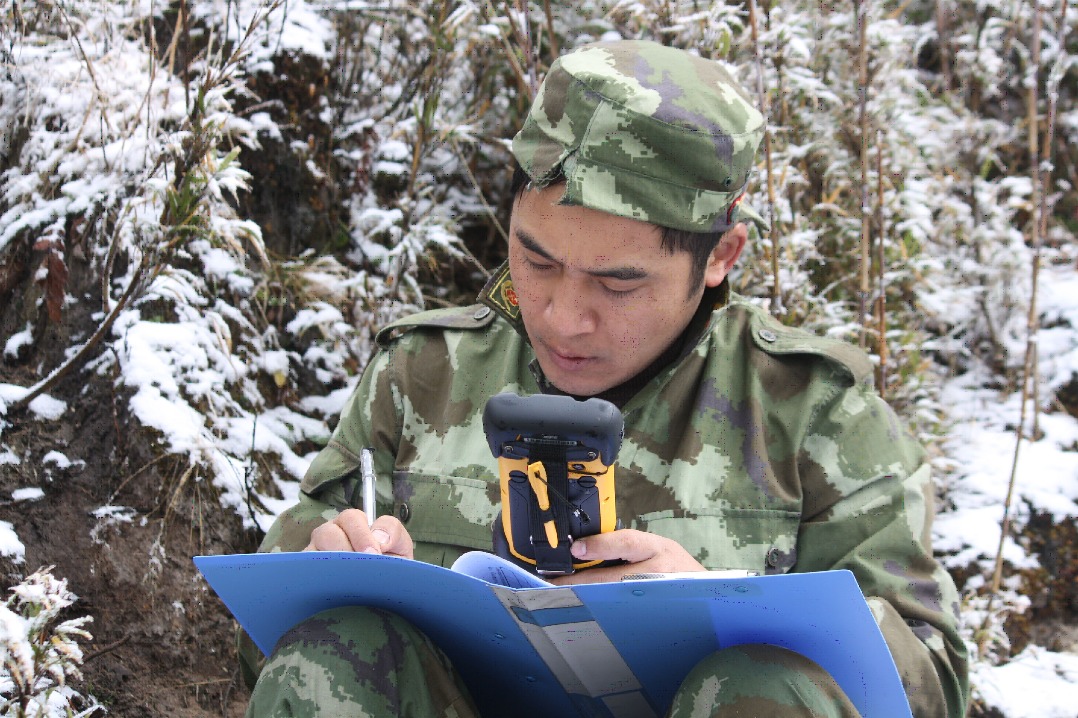Doctor refuses to abandon his patients


Editor's note: In this new series, we share stories and experiences showing how expats are dealing with the novel coronavirus pneumonia outbreak.
Despite the outbreak of novel coronavirus pneumonia in China, Giuseppe Bigatti, a world-leading expert in hysteroscopy-a procedure in which doctors examine and treat the inside of the uterus-chose to stay in Shanghai to continue seeing patients there.
Bigatti, director of the Hysteroscopy Center of Shanghai Renji Hospital, even offered to join the battle to save lives in Wuhan after seeing more than 160 colleagues dispatched to the city, but his offer was declined because gynecology and obstetrics specialists were not in demand there.
"I like Shanghai, and I was confident that the Chinese government, which took aggressive measures, would be able to contain the spread of the virus," said Bigatti, who stayed with his wife in the city and continued to work with his Chinese colleagues, even though the number of patients who came in for consultations and procedures fell after the outbreak.
"The number of confirmed cases in Shanghai was not large in late January. I trusted the city's management standards and I didn't think there was need for panic," he said, praising the success of public health education.
Bigatti expressed concern over the situation in Italy."If the cases of the COVID-19 in Italy continue to rise, there won't be enough capacity in local hospitals to receive a large number of patients, and they are not as fast as China, which was able to build a hospital in 10 days," he said.
Before joining Renji Hospital, affiliated with Shanghai Jiao Tong University School of Medicine, in April, Bigatti worked in hospitals in Italy and became known in his field worldwide.
He invented the Intrauterine Bigatti Shaver, an instrument used for removal of tissue. It uses mechanical energy instead of electricity to treat diseases of the lining of the uterus.
Bigatti said he is confident that the IBS, which usually is used in outpatient procedures, is the future for such procedures because traditional methods using electricity can be risky.
"The shaver method will minimize injury to the uterus and optimally protect" the uterus' lining, Bigatti said. He said that is important because for many patients, fertility is a big issue.
The Hysteroscopy Center of Shanghai Renji Hospital opened in June, and it became known for its use of a wide array of medical instruments, including the IBS, on a large scale.
Altogether 700 operations have been performed at the center. "My next step is to invent a new type of shaver so that such patients (with hard benign tumors) can also benefit from a safe and less unpleasant operation," Bigatti said.
The Italian doctor said he was interested in collaboration with Chinese medical institutions and was introduced to the Shanghai hospital by an industry insider.
"The stage in China is big, and I hoped to improve the quality of these operations in the country-and from the country to the world," he said.
Besides full-time work at the hospital, Bigatti has used weekends to speak about the IBS at 20 or so industry conferences. He was also invited to provide training for the new instrument and technology in the Philippines and in some countries in Europe.
As a national clinical training center for hysteroscopic surgery, Renji Hospital also trains doctors from all over the country on the latest trends, such as using the IBS.
Di Wen, vice-president and director of obstetrics and gynecology at the hospital, said Bigatti is a dedicated physician with a passion for his work and technological inventions.
"Also, he became used to life in Shanghai quickly. He knew where to shop for groceries, where to find the best Italian dishes in town, and he became skilled at mobile payments. We didn't worry about him at all," Di said.




































